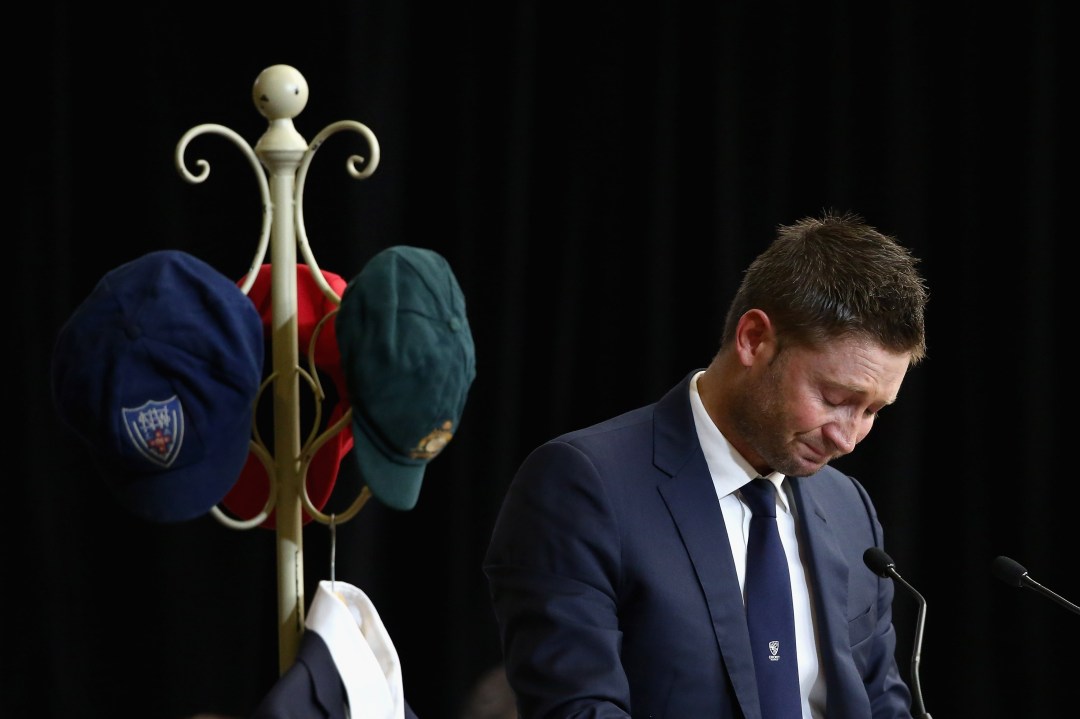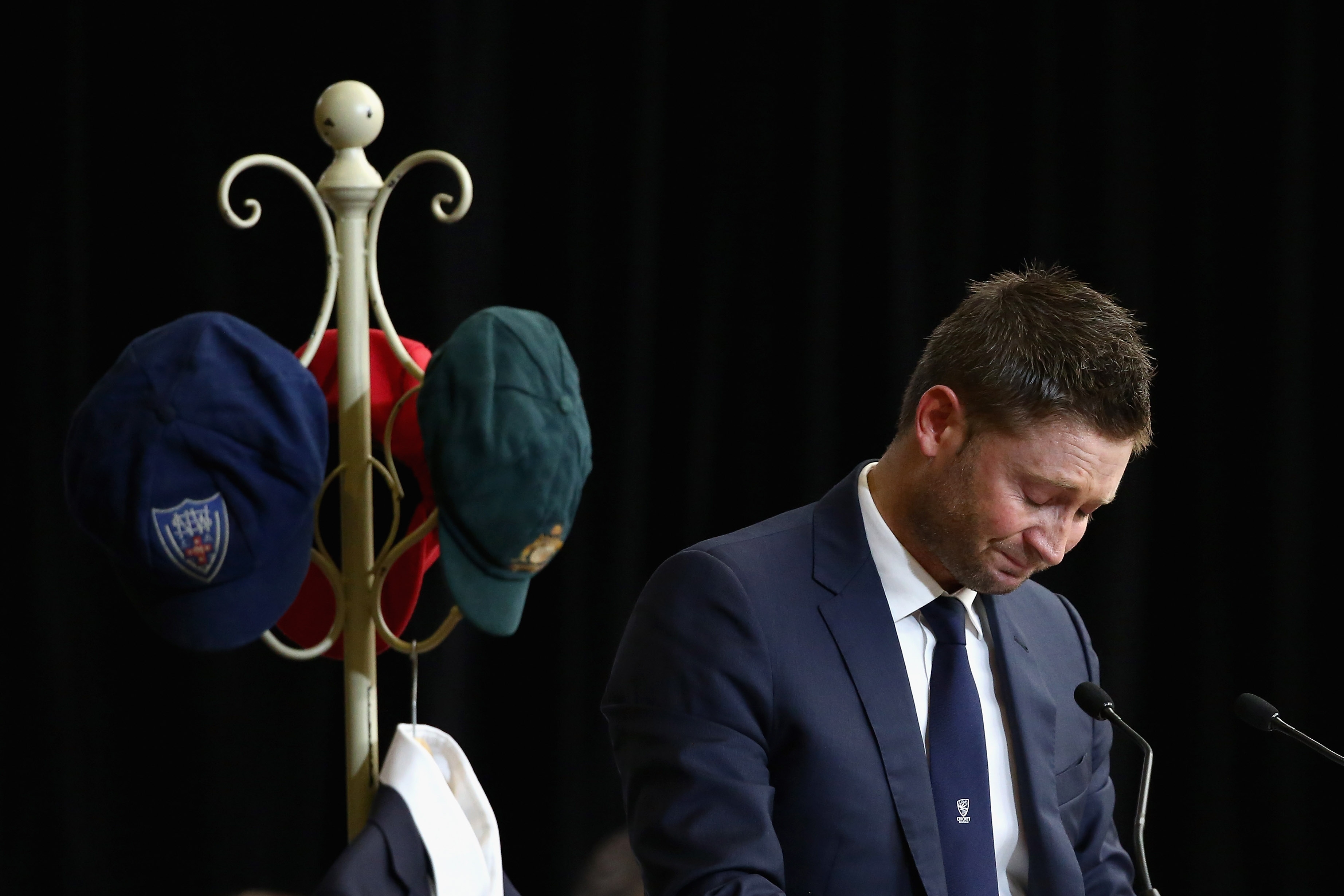If sport is a quest for the epic it is also, at the highest echelons, a tilt at immortality. Phillip Hughes has achieved that in the most unconscionable fashion. He will be remembered for as long as the game is played. He is another member of the What might Have Been club.
This, of course, reflects the horrifying manner of his death – felled by an ordinary bouncer that left a freakish mark – but also the fact that despite 26 test match appearances and nearly 10,000 first-class runs we never quite got to see the best of Phillip Joel Hughes. The promise had not been fulfilled. Not quite at any rate but, as he approached his 26th birthday, there was ample reason to think his finest years lay ahead. Years in which the flashing impetuosity of youth would be strengthened by the wisdom of maturity. He still had time to be a batsman in full.
In England, unless you were a member at Middlesex, Hampshire or Worcester, we rarely saw Hughes at his best. But even here there were intimations of potential greatness. His 81 not out at Trent Bridge was overshadowed by Ashton Agar’s luminously improbable 98 but Hughes’s innings was the greater and the one that seemed more significant, more likely to be a kind of defining moment at which a batsman grew in front of us.
It was not to be. Australia, so often reckoned bolder in selection than conservative England, never quite managed to make a success of Hughes. He was forever in and out of the side, forever burdened by the appreciation he was playing for his place. He did not have the luxury of security.
There were technical issues to be overcome. A weakness against the short ball now seems a wince-inducing harbinger of future horror but at his best Hughes played with an unorthodox gaiety that was exhilarating. He bounced and hopped like a juvenile kangaroo, gleefully slashing and carving the ball through backward point and the covers. He was always fun to watch; he was never less than interesting even when, as was too often the case, he was struggling for form.
In that respect Hughes’s difficulties were only all too familiar: like the rest of us, at whatever level we play the game, his real battle was with himself, not the bowler. Master your own temptations and the rest may follow. That is the real secret of cricket, the real struggle that defines a batsman. The greater your talent, the greater the scale of the challenge but it is, in its essence, much the same wherever the game is played and at whatever level. A test of judgement and character. We all find our level.
All of which helps explain, I think, why Hughes’s death touched so many people wherever cricket is played and loved. The game is organised along national lines but exists above those demarcations. What unites cricket people is far greater than anything that divides them. Indeed in many ways it is the least nationalistic of all the great games. As the young Cardus claimed to pray,
“Please, god, let Victor Trumper score a century today for Australia against England – out of a total of 137 all out.”
The poignancy – and simplicity – of the #PUTOUTYOURBATS
hashtag on Twitter affected cricket folk all across the globe. Social media served as a kind of cathedral of remembrance and it was all deeply moving. There but for the grace of god, of course, but also something else: a community of believers celebrating a life but also, obliquely, the game itself. Even in this dark hour.
As
Michael Clarke put it in his address today:
Is this what we call the spirit of cricket? From the little girl in Karachi holding a candlelight tribute to masters of the game like Tendulkar, Warne and Lara, showing their grief to the world, the spirit of cricket binds us all together. We feel it in the thrill of a cover drive. Or the taking of a screamer at gully, whether by a 12-year-old boy in Worcester or by Brendon McCullum in Dubai. It is in the brilliant hundred or five-wicket haul, just as significant to the players in a Western Suburbs club game as it is in a Test match.
The bonds that lead to cricketers from around the world putting their bats out, that saw people who didn’t even know Phillip lay flowers at the gates of Lord’s, and that brought every cricketing nation on earth to make its own heartfelt tribute.
The bonds that saw players old and new rush to his bedside. From wherever they heard the news to say their prayers and farewells. This is what makes our game the greatest game in the world. Phillip’s spirit, which is now part of our game forever, will act as a custodian of the sport we all love.
Most popular
Where did it all go so wrong for Britain?
The sentiment of cricket, certainly.
Australia may have seen nothing like this since 1933 when another young star was extinguished much too soon. Archie Jackson, dubbed the Keats of Cricket by his biographer, was only 23 when he died of tuberculosis in Brisbane. Ill-health restricted his career to just eight tests and robbed posterity of a likely giant of the game. The sharp-yet-sweet melancholy of What Might Have Been always cheats you in the end. It steals an alternative future.
Jackson, as fate would have it, died during the most infamous series of them all. The Bodyline series tested cricket as it had rarely been tested before but, for a moment, even this turbulence was quietened by the realisation that, on the very morning England won back the Ashes at the Gabba, Archie Jackson had breathed his last. In what David Frith has called “a kind of Viking glory” Jackson’s corpse was carried home to Sydney in the same railway carriage conveying the cricketers of both countries to their next rendezvous at the Sydney Cricket Ground.
His funeral, like that of Phillip Hughes today, was an occasion for national mourning. A life curtailed, a promise unfulfilled, a future thieved. Jackson’s gravestone bears a simple, perfect, inscription: He played the game.
Indeed he did and so did Phillip Hughes. Like Jackson, Hughes will be remembered too. Now, as ‘Pup’ Clarke said today: We must dig in and get through to tea. And we must play on.








Comments